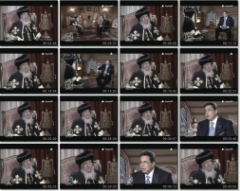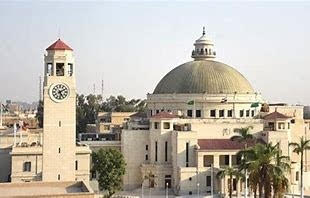WATANI International
2 January 2011
Our reading in the Cairo press this week takes us to the weekly State owned al-Qahira, a paper mainly concerned with culture and cultural events. Al-Qahira printed an article by Ashraf al-Boulaqi on the holy books of non-Muslims, to which he gave the title “The Islamic address”.
Boulaqi’s name is not a familiar one, and the topic he boldly broached is a sensitive, widely sidelined one. It is very infrequently handled by the press, that is, if ever it is tackled objectively. But it is very frequently handled by the media when tackled from the [Islamic] viewpoint that the present Bible and Torah are misquotations of original versions. It must be noted that the Qur’an acknowledges Christianity and Judaism as Godly religions yet is widely understood to consider Jews and Christians as apostates. The assumption that the Torah and the Bible are misquoted appears to resolve the dilemma.
Two-dimensional
The writer says that there are two dimensions to Egyptian sectarianism. The first is sectarian discrimination on the social, cultural, and political levels, which leaves Copts with a sense of being marginalised and a constant feeling of being a persecuted minority. The second dimension, according to Boulaqi, is discrimination on the level of faith and creed. Egypt’s Copts are more often than not pained by the official and public Islamic address which insists on describing Christians and Jews as apostates and their holy books as distorted and misquoted. Such claims are propagated by all imams, from the grand imam of al-Azhar to the imam of the smallest prayer corner in the tiniest alley, without any considerations to the implications of their words on listeners whether Muslim or Christian. Boulaqi boldly asks why these imams appear unable to praise the Qur’an and highlight its value without degrading the other holy books. He insists that the claim that the Qur’an describes Christians and Jews as apostates is a misreading of the text.
Based on a number of Qur’anic verses, the writer doubts the veracity of some of widely propagated interpretations of the Qur’an. He asks why no Muslim scholar ever gave an answer to the question posed by Christians in reply to the misquotation claim: whether the Bible was misquoted before or after Islam. Because if it was misquoted before Islam, how could Islam have acknowledged it; and if after, how can it today be used to support the Muslim argument that certain verses in the present Bible prophesy the coming of Mohamed?
The boldness of al-Qahira in printing such an ‘unconventional’ viewpoint warrants applaud, yet it begs the question of whether it takes us into the disreputable area of the debate of religious beliefs. Such debate had caused so much scarring on the public religious level that the Journalists Syndicate had, a few months ago, issued a declaration banning it.
Print now, deny later
A brief round-up of the 2010 Egyptian press coverage of Coptic-related issues would deservedly grant the first prize for fanatic stories to the weekly independent Sout al-Umma, a paper with flagrant Islamist inclinations. Throughout the year, Sout al-Umma published a number of false stories concerning Copts, last of which was the allegation that three Mobinil employees were arrested and charged with spying for Israel against Egypt. Mobinil, whose founder and majority-owner is the Coptic business tycoon Naguib Sawiris, is the top mobile phone operator in Egypt by number of subscribers. Sout al-Umma insinuated in its story that the company’s Christian owner, Sawiris, was involved in the espionage, an allegation that was categorically denied by the Egyptian telecom authority. Almost every issue of Sout al-Umma includes one or more stories that attack the Copts or the Church.
Along the same line, Cairo’s topmost paper, the staid, State-owned daily al-Ahram has been seen by many Copts to have taken an increasingly fanatic line during 2010. Whenever it covered sectarian issues, the paper was seen to side against the Copts. In case of the Umraniya riots last November, in which the security forces opened fire against Coptic demonstrators killing two and wounding scores, al-Ahram took the official side and offered no objective reporting.
In other incidents the paper printed unbalanced, unauthenticated material concerning Copts or the Church. Columnist Abdel-Nasser Salama wrote an article in the wake of the Umraniya riots in which he alleged that the State was “coddling and pampering” the Copts, encouraging them to riot for no apparent reason. He accused Pope Shenouda III of fanaticism, citing as reference an article allegedly written by the Pope in the 1970s and calling for the expulsion of the Muslim “invaders” from Egypt. It is a well-known fact that the ‘article’ was never written by Pope Shenouda, but was propagated by Islamists and attributed to the Pope in order to incite the ruling regime in Egypt against the Copts. Al-Ahram came under heavy fire from the Copts and Egyptian liberals once Salama’s column was published, with many reminding of the dire conditions of Copts in Egypt, so contrary to any official coddling or pampering; and of Pope Shenouda’s by-now famous wisdom and patriotic stances. Al-Ahram’s editor-in-chief Usama Saraya later wrote a lengthy apology, extolling the Pope’s virtues and patriotism, and stressing that no man in his right senses could attribute to him any fanaticism.











